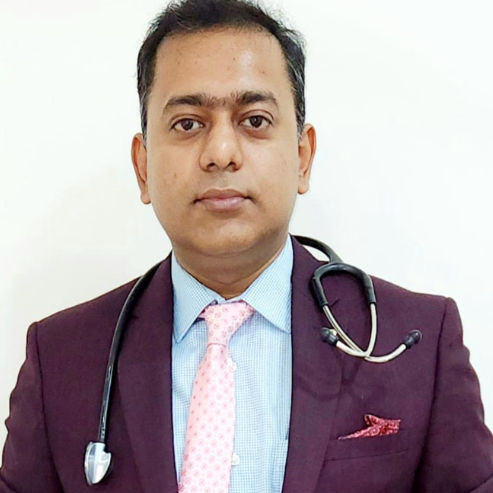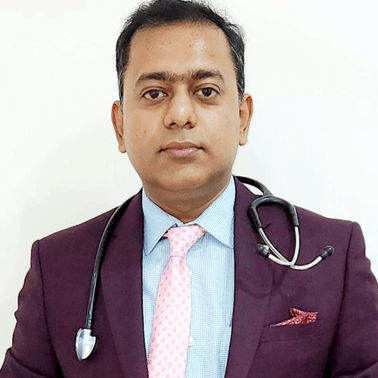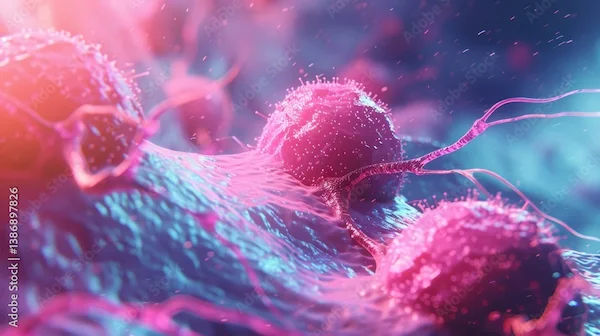What is Colon Cancer and Its Symptoms?
Understand colon cancer: Learn what it is, common risk factors, and the crucial symptoms to watch for, including changes in bowel habits, blood in stool, and unexplained weight loss. Early detection saves lives.

Written by Dr. J T Hema Pratima
Reviewed by Dr. D Bhanu Prakash MBBS, AFIH, Advanced certificate in critical care medicine, Fellowship in critical care medicine
Last updated on 7th Aug, 2025

Colon cancer, also known as colorectal cancer, is a serious but often treatable disease that affects the large intestine (colon) or rectum. It usually begins as small, noncancerous growths called polyps, which can turn cancerous over time if left untreated.
Early detection is key to successful treatment, so knowing the symptoms and risk factors can help you take action before the disease progresses. Let’s break down what colon cancer is, its symptoms, causes, and ways to reduce your risk.
What Are the Symptoms of Colon Cancer?
Colon cancer may not show symptoms in its early stages, which is why regular screenings are crucial. However, as the disease progresses, you may experience:
Changes in bowel habits (diarrhea, constipation, or narrowing of stools lasting more than a few days)
Blood in the stool (bright red or very dark)
Abdominal discomfort (cramps, gas, or pain that doesn’t go away)
Unexplained weight loss
Weakness or fatigue (due to anemia from blood loss)
Feeling that the bowel doesn’t empty completely
If you notice any of these symptoms persistently, it’s important to consult a doctor. Many of these signs can also be caused by less serious conditions, but getting checked early can make a big difference.
Consult Top Oncologist For personalised Tips
What Causes Colon Cancer?
The exact cause of colon cancer isn’t always clear, but certain factors increase the risk:
1. Age
Most cases occur in people over 50, though younger adults can also develop it.
2. Family History & Genetics
If a close relative had colon cancer, your risk may be higher. Some genetic conditions, like Lynch syndrome, also increase susceptibility.
3. Lifestyle Factors
Poor Diet – Eating too much red meat, processed foods, and lowfiber meals.
Lack of Exercise – Sedentary habits contribute to higher risk.
Obesity – Excess weight is linked to increased colon cancer risk.
Smoking & Heavy Alcohol Use – Both can damage cells in the colon.
4. Pre-existing Conditions
Inflammatory Bowel Diseases (IBD) – Such as Crohn’s disease or ulcerative colitis.
Diabetes – People with diabetes have a higher risk.
How Can You Reduce Your Risk?
While some risk factors (like age and genetics) can’t be changed, you can take steps to lower your chances of developing colon cancer:
1. Get Screened Regularly
Colonoscopy (recommended every 10 years starting at age 4550)
Stool Tests (FIT or gFOBT annually)
Flexible Sigmoidoscopy (every 5 years)
Screening helps detect polyps before they turn cancerous, making treatment easier.
2. Eat a Healthy Diet
More fiber (fruits, vegetables, whole grains)
Less processed meat (bacon, sausages, hot dogs)
Lean proteins (fish, chicken, beans)
3. Stay Active
Regular exercise (even walking 30 minutes a day) helps maintain a healthy digestive system.
4. Avoid Smoking & Limit Alcohol
Quitting smoking and reducing alcohol intake can significantly lower risk.
5. Maintain a Healthy Weight
Obesity increases colon cancer risk, so managing weight through diet and exercise is beneficial.
When Should You See a Doctor?
If you experience persistent symptoms like blood in stool, unexplained weight loss, or major bowel habit changes, don’t ignore them. Early detection saves lives.
If you’re 45 or older, or have a family history of colon cancer, talk to your doctor about screening options.
Take Action Today
Colon cancer is preventable and treatable when caught early. If you’re concerned about symptoms or due for a screening, Apollo 24|7 makes it easy to consult with specialists or schedule tests from home.
Book a consultation today and take the first step toward better digestive health!
Final Thoughts
Colon cancer is a serious condition, but awareness and early action can make all the difference. By understanding the symptoms, risk factors, and preventive steps, you can protect your health and encourage loved ones to do the same.
Stay informed, stay proactive, and don’t hesitate to seek medical advice if something feels off. Your health matters!
Consult Top Oncologist
Consult Top Oncologist For personalised Tips

Dr. Rupam Manna
Radiation Specialist Oncologist
4 Years • MBBS MD(RADIO THERAPY)
Barasat
Diab-Eat-Ease, Barasat

Dr Sunita Samleti
Oncologist
18 Years • M.D. (Pathology)- TN Medical College, Mumbai University, Mumbai, Mar 2005 M.B.B.S. Grant Medical College, Mumbai University, Mumbai, Oct 1999
Chinagadila
Apollo Hospitals Health City Unit, Chinagadila

Dr Gowshikk Rajkumar
Oncologist
10 Years • MBBS, DMRT, DNB in Radiation oncology
Bengaluru
Apollo Clinic, JP nagar, Bengaluru

Dr.sanchayan Mandal
Oncologist
17 Years • MBBS, DrNB( MEDICAL ONCOLOGY), DNB (RADIOTHERAPY),ECMO. PDCR. ASCO
Kolkata
Dr. Sanchayan Mandal Oncology Clinic, Kolkata

Dr. Sanchayan Mandal
Oncologist
17 Years • MBBS, DNB Raditherapy, DrNB Medical Oncology
East Midnapore
VIVEKANANDA SEBA SADAN, East Midnapore
Consult Top Oncologist

Dr. Rupam Manna
Radiation Specialist Oncologist
4 Years • MBBS MD(RADIO THERAPY)
Barasat
Diab-Eat-Ease, Barasat

Dr Sunita Samleti
Oncologist
18 Years • M.D. (Pathology)- TN Medical College, Mumbai University, Mumbai, Mar 2005 M.B.B.S. Grant Medical College, Mumbai University, Mumbai, Oct 1999
Chinagadila
Apollo Hospitals Health City Unit, Chinagadila

Dr Gowshikk Rajkumar
Oncologist
10 Years • MBBS, DMRT, DNB in Radiation oncology
Bengaluru
Apollo Clinic, JP nagar, Bengaluru

Dr.sanchayan Mandal
Oncologist
17 Years • MBBS, DrNB( MEDICAL ONCOLOGY), DNB (RADIOTHERAPY),ECMO. PDCR. ASCO
Kolkata
Dr. Sanchayan Mandal Oncology Clinic, Kolkata

Dr. Sanchayan Mandal
Oncologist
17 Years • MBBS, DNB Raditherapy, DrNB Medical Oncology
East Midnapore
VIVEKANANDA SEBA SADAN, East Midnapore

